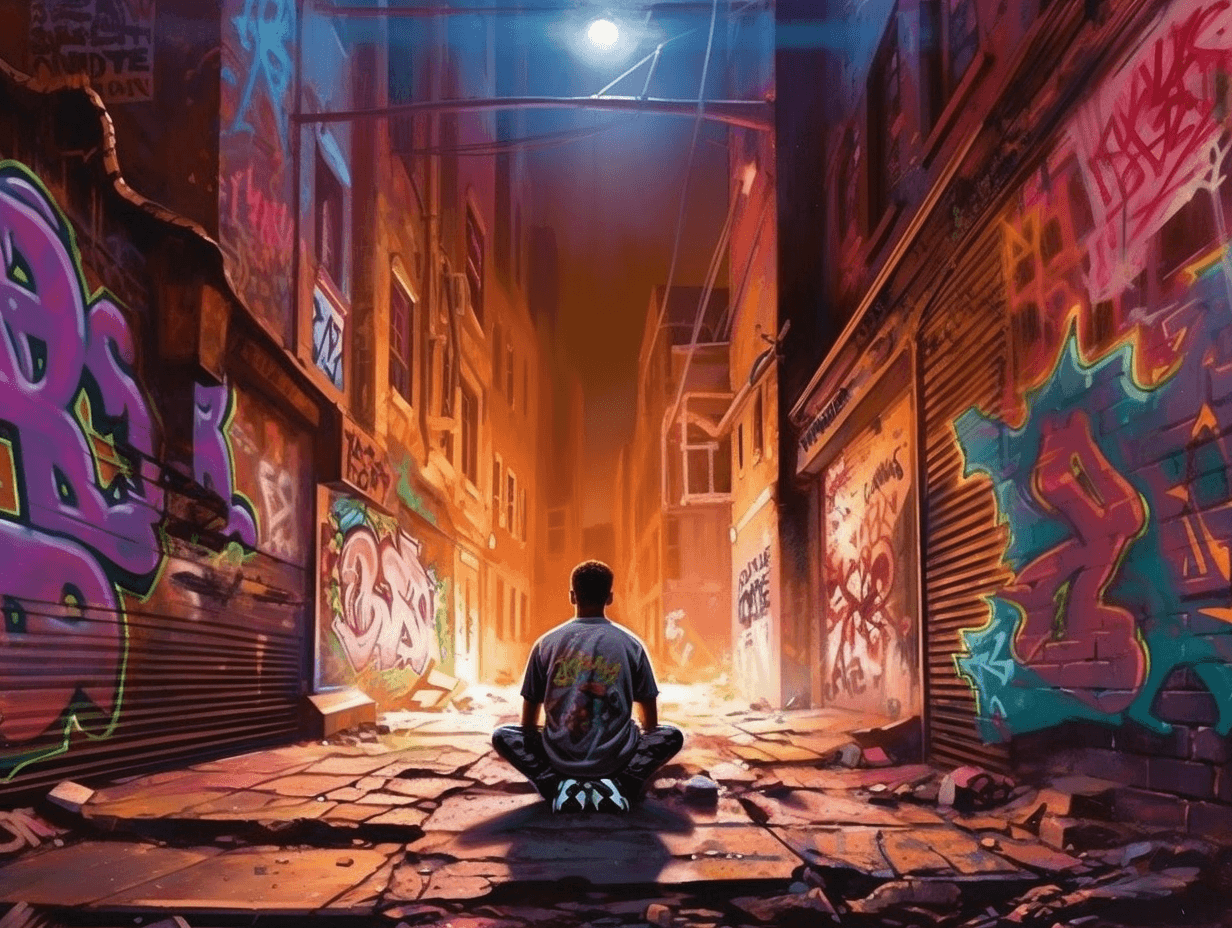Science
The Mountain That Whispers: Hidden Seismic Signals Uncovered at Barry Arm
23 January 2026

Is loneliness a sign of the times? It has always been interpreted as part of human existence, piquing the interest of thinkers, artists, and scientists. However, observing the lifestyle of contemporary humans prompts us to inquire about it even more distinctly and forcefully than ever. Why has the experience of loneliness become so prevalent in today's world?
“We live as we dream – alone.” This statement from the novel Heart of Darkness by the eminent writer Joseph Conrad (1857–1924) captures a fundamental truth we confront on a daily basis, in both positive and negative ways. Many of us know from our experience what loneliness is. Perhaps we’ve only experienced it momentarily or fleetingly, or for some of us it has been more enduring, encompassing a certain period or phase in our lives. For some, loneliness may have been triggered by a specific event, such as the death of a loved one, a relationship breaking up, or the departure of someone close. For others, it lingers longer because the event was so difficult, painful, and demanding that we couldn’t quickly and effectively cope with it. Family misunderstandings and differences of opinion among individuals who are close can create such a deep chasm between people that loneliness persists for years. It gnaws from within and doesn’t fade, often entwined with a sense of misunderstanding, rejection, or loss. This experience of loneliness endures, and the person yearns for liberation from the situation. The burden of loneliness becomes unbearable while the individual’s sole desire is to be free of it. However, we don’t always know how to achieve this or where the path to healing such lies.
Why is the experience of loneliness increasingly prevalent in contemporary times? What are the causes of this experience, and where will it lead? Can we change it, and if so, how? Seeking answers to these questions, we find many hints in reading Jean-Paul Sartre (1905–1980), the father of French existentialism, who emphasized the absolute freedom of humans in the world and saw loneliness as its consequence – a fundamentally inherent experience in human life. There’s a close relationship between our understanding of freedom and loneliness: the sense of isolation experienced by contemporary humans is the price they pay for unlimited freedom. Embracing a model of life in which another person is seen as a threat to my rights and freedoms results in a sense of loneliness and deepens the longing for human connection.
Read also:
When examining the state of humans from a philosophical perspective, a question arises: could it be that human beings are inherently condemned to eternal experiences of loneliness? Perhaps loneliness isn’t merely a fleeting experience or a transitional state but rather a construction of this world that perpetually, in its way, leaves us feeling lonely. Is it possible that we’ll always experience some form of loneliness? Sartre explains why this might be the case. In his view, which rejects the existence of God and, consequently, a predetermined order of rules and values, human beings can’t rely on divine presence in the world as a point of support. Nothing that occurs here can be explained by a divine plan or predetermined destiny that would, to some extent, ease our struggles with difficult experiences in earthly life. The individual is alone in this. “We are born alone, we live alone, and we die alone. Aloneness is our very nature, but we are not aware of it,” as the Hindu philosopher Osho (1931–1990) adds.
However, one might argue that we aren’t entirely alone because others face similar challenges, setbacks, and failures in their lives. Shouldn’t this similarity of experiences and the shared burdens of fate bring people closer, thereby alleviating the pain of our collective existence? Sartre rejects this viewpoint and attributes the complete loneliness of humans to the human freedom. Each of us possesses equal freedom, absolute freedom, which compels every individual to pursue full enjoyment and limitless self-fulfillment.
Yet it’s precisely this approach that engenders perpetual conflict between our freedoms. As each of us is equally free and unwilling to restrict our freedom for others’ sakes, the natural consequence is a perpetual state of rivalry and competition between these freedoms. Everyone fights solely for themselves. Everyone believes they have the right to do so… and sees no need to let any part of their rights go for the sake of others. The inevitable result is an ongoing state of war between our freedoms and, as a consequence, an eternal sense of social incomprehension, rejection, and alienation. Hence, Sartre’s famous statement that “hell is other people.” It’s because they seem to threaten taking our freedom, leaving us forever lonely in the necessity of defending ourselves against them.

Interestingly, Sartre describes his position as optimistic. Why? Because it all depends on me, and “man is nothing else but what he makes of himself,” the philosopher states. The shape of my life relies solely on my efforts, strength, determination, and commitment (Sartre favors that term!). No externally imposed system of values restricts me since we exclude the existence of God. Other people can pose obstacles, but ultimately the extent to which I allow them to influence my life rests solely on my efforts.
In other words, there is no determinism; man is free, m a n i s f r e e d o m.
The exclusion of external constraints and entrusting the individual with complete agency for their fate to the individual can be tempting. When looking at contemporary human beings, one can get the impression that for many today, such a vision seems the pinnacle of paradise. I can do anything; no one and nothing limits me. There is no hell, no heaven; I alone decide everything without fear of ultimate judgment for my actions. Other people? They are mere competition, obstacles to self-realization. But with strong self-belief, there are no obstacles I can’t overcome. Where there’s a will, there’s a way!
At this point, it’s worth asking: how many people do I know or know about through others who live in precisely this way? How many times in my life have I encountered individuals who acted according to Sartre’s description, with whom I had to cooperate for various reasons? Observing contemporary societies, such a model of functioning doesn’t seem extraordinary. The pursuit of success, self-realization at any cost, and the concern for one’s well-being and personal rights and freedoms dominate the twenty-first century. At times, one could say that Sartre, formulating his views in the 1940s and 1950s, foresaw the direction in which the modern human would continue evolving.
However, what we need to ask today is: what price do we pay for this model of life? When Antoine de Saint-Exupéry (1900–1944), the renowned writer and poet, states that “In the desert, one is a little lonely. Equally lonely as among people,” it raises the question: could this desert be the very space of our mutual relations with other people in this century? To what extent have we believed in ourselves and in our agency, as Sartre asserts, subordinating all our activity to the broadly understood concept of “success”? On the path to self-realization, in the pursuit of victory, have we started treating any other person with distance and suspicion, though, like me, they also strive for their own success?
Contemporary humans increasingly measure themselves in terms of being better or worse than others. Often we don’t even have the courage to admit to this honestly, yet competing with others and comparing ourselves, our achievements, and our successes to those of others has become our everyday reality. It’s even considered desirable! After all, rankings and statistics geared to this are developed in almost every professional field. In large part they drive the competitive lifestyle in which the other person is seen as a threat. One must be better, optimize one’s abilities, and up the effort….
The price of functioning this way seems logical and obvious: alienation and a persistent sense of solitude. Sartre believes this to be a natural, an inevitable way of life. However, it’s worth questioning to what extent we’re contributing to its creation through our choices. How does our perception of ourselves and our understanding of “success” and consequently our attitudes and approaches towards others solidify this way of life? When I prioritize my freedom and desire for self-fulfillment at any cost, the inevitable outcome is a hostile attitude towards other people, institutions, and communities. Therefore drawing back from interrelations, maintaining shallow connections, or simply avoiding them often becomes the price of my success. It’s a tangible and evident cost that I only become aware of during crucial moments in life, often only in extreme circumstances.
In our daily lives, today’s world offers numerous substitutes and facsimiles of relationships that Sartre couldn’t have imagined, which thrive due to technological progress. How many Facebook friends do I have? How many retweet my messages? How many send me modest text messages on my birthdays and name days? Humans are masters of self-deception. They’re capable of performing various tricks to drown out the voice of loneliness and convince themselves they aren’t as lonely as they feel. But is that sufficient in fundamentally quelling the longing for genuine human connection?
Let’s conclude by turning to the words of the contemporary writer Haruki Murakami (b. 1949) who, with remarkable sensitivity to the human condition, expresses this sentiment: “Why do people have to be so lonely? What is the meaning of this? Millions of people in this world, all yearning, seeking satisfaction from others, yet isolating themselves. Why? Was the earth put here solely to nurture human loneliness?” Can all these tricks and substitutes for relationships with others alleviate the fundamental sense of loneliness we’re creating for ourselves? Was Sartre accurate in equating the sense of freedom with the sense of loneliness? After all, defending radical positions is always going to be challenging. Maybe the contemporary human could diminish the scope of their absolute freedom slightly, and experience a little less loneliness in return. It’s worth considering, isn’t it?
Sources:
Joseph Conrad: Heart of Darkness, 2023
Osho, Love, Freedom, and Aloneness: The Koan of Relationships, 2022
Jean-Paul Sartre: Existentialism Is a Humanism, 1998
Antoine de Saint-Exupéry: The Little Prince, 1990
Haruki Murakami: Sputnik Sweetheart, 2013

Science
22 January 2026

Zmień tryb na ciemny